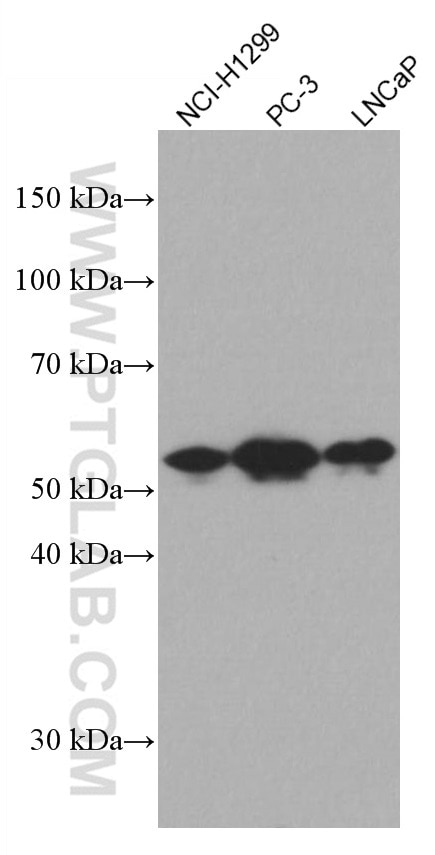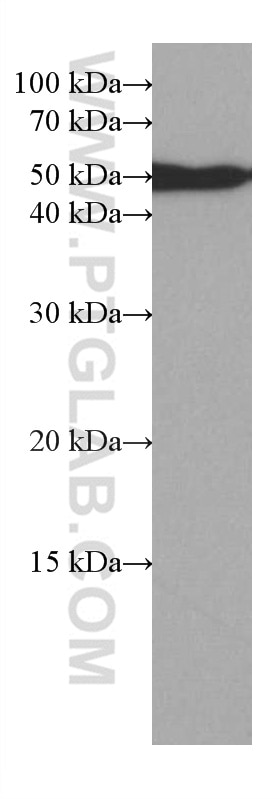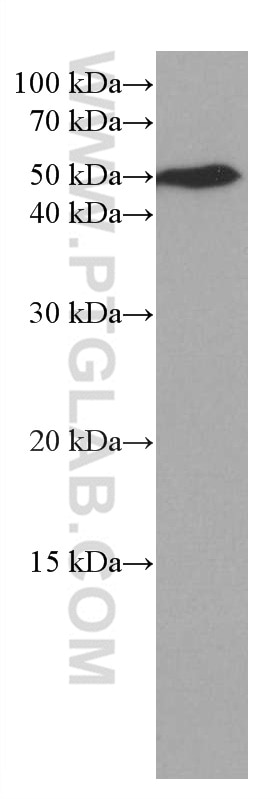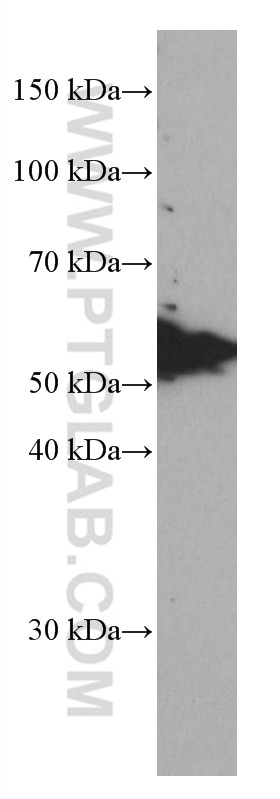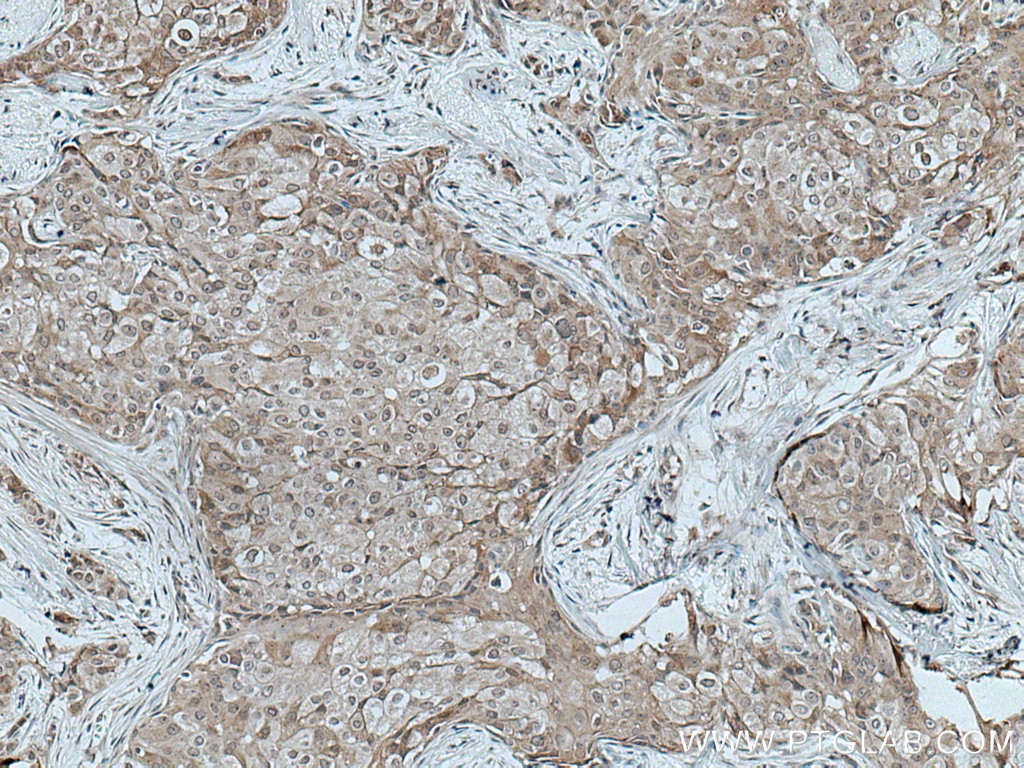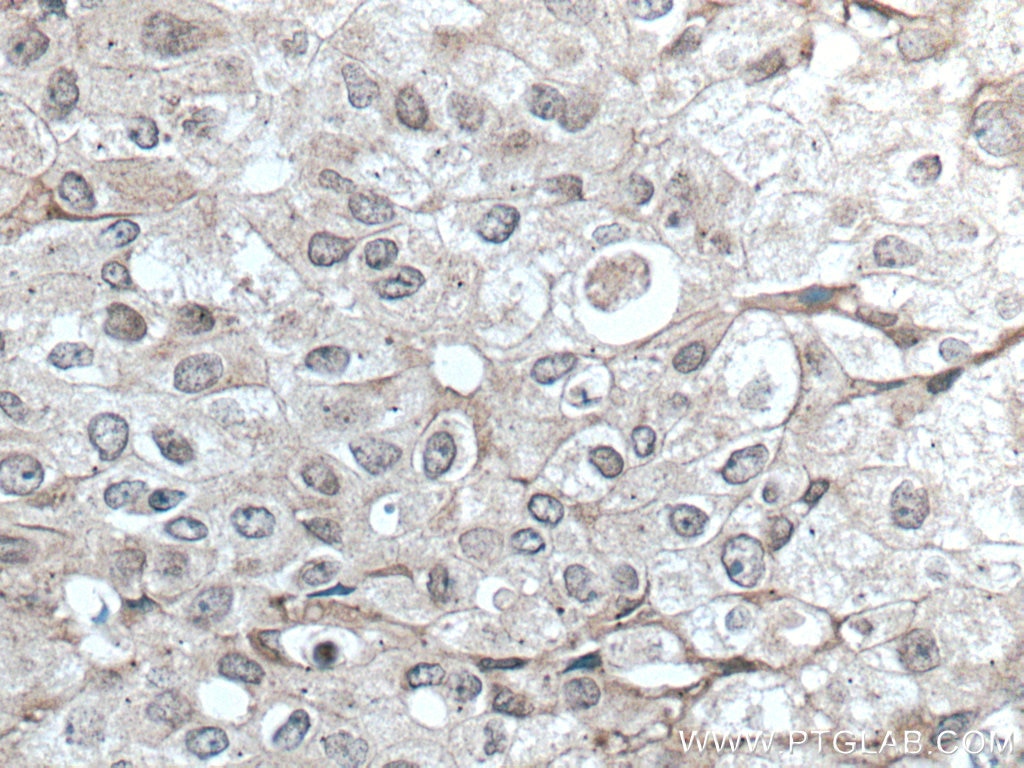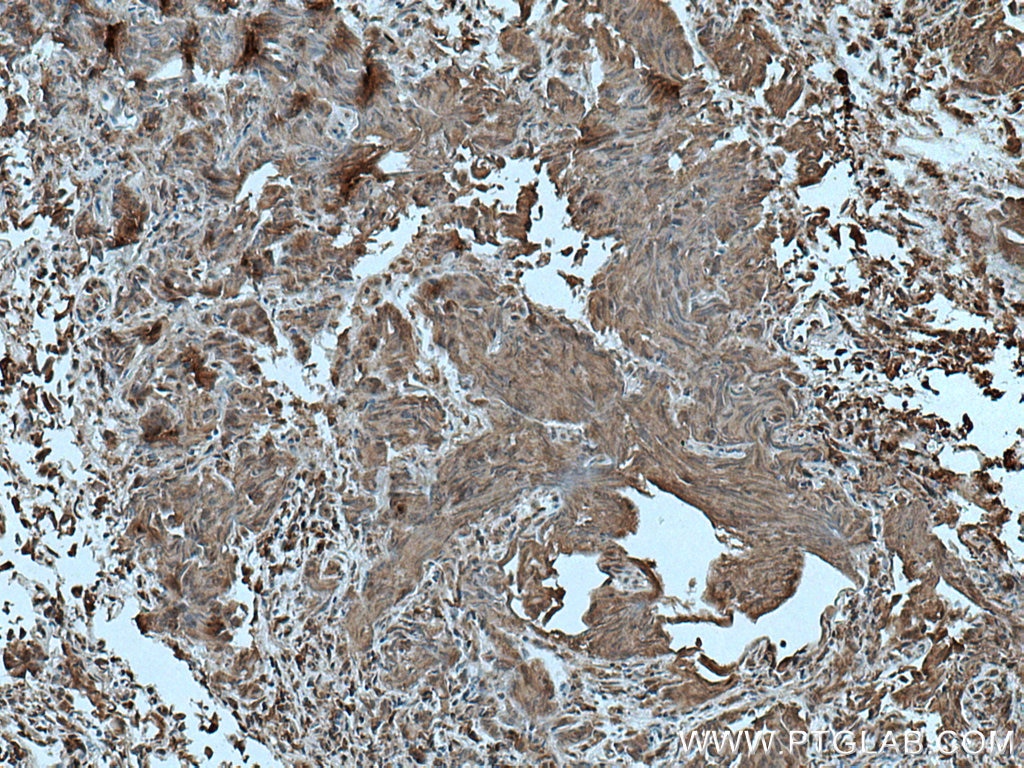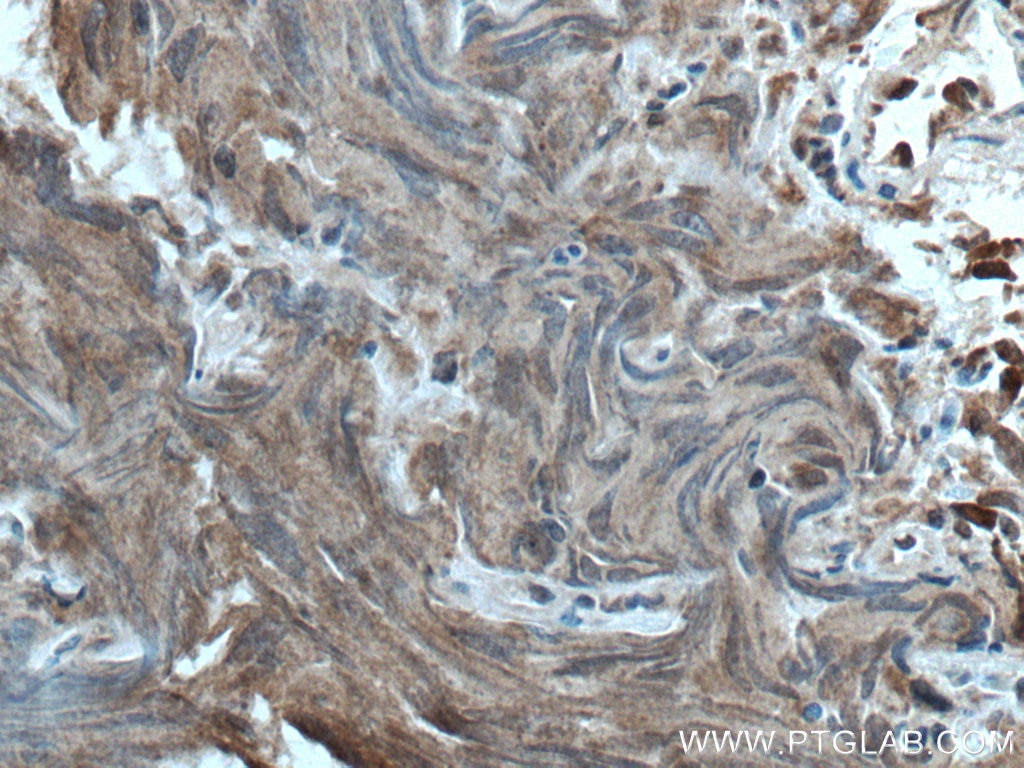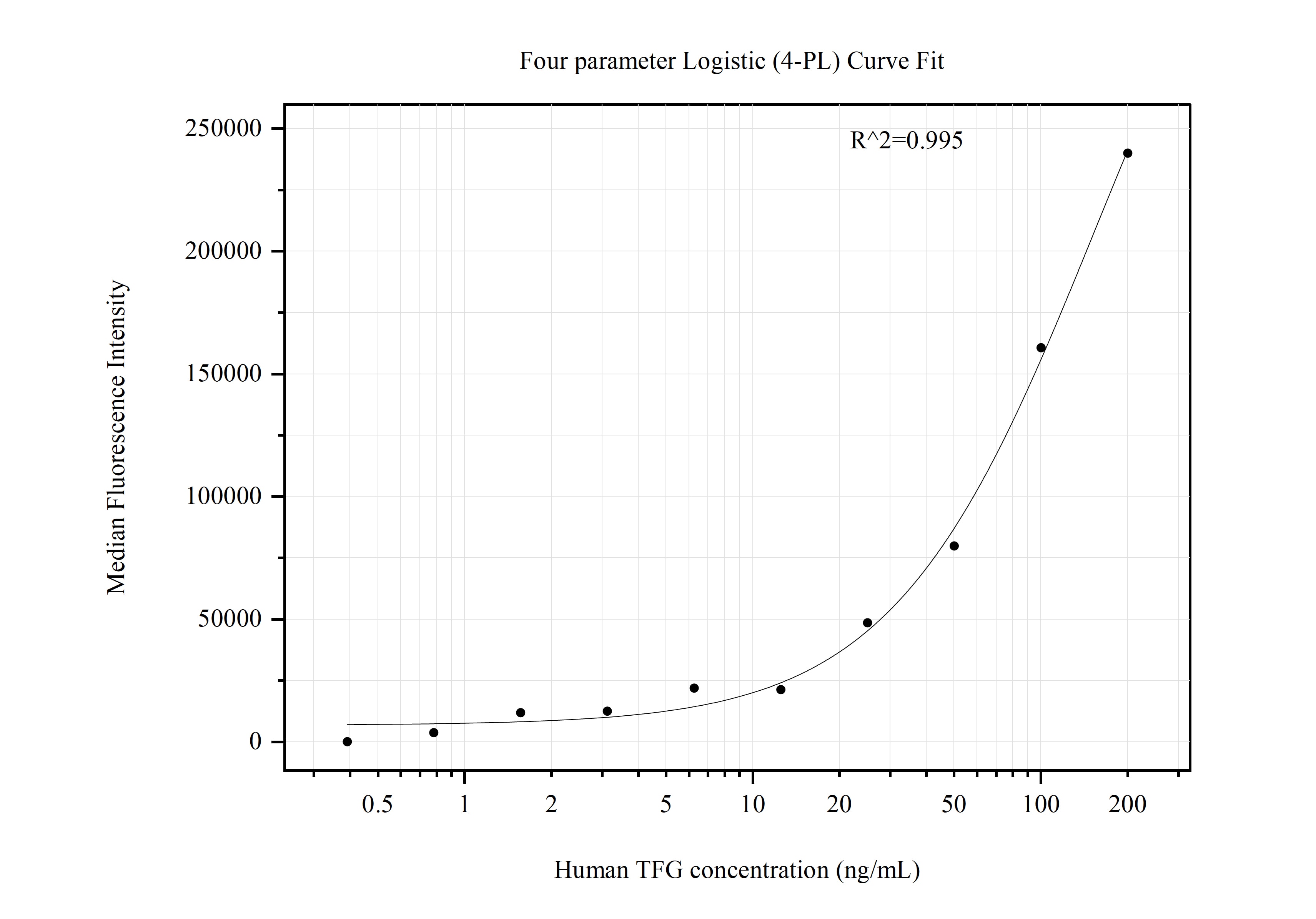TFG Monoklonaler Antikörper
TFG Monoklonal Antikörper für WB, IHC, Cytometric bead array, Indirect ELISA
Wirt / Isotyp
Maus / IgG2b
Getestete Reaktivität
Hausschwein, human
Anwendung
WB, IHC, Cytometric bead array, Indirect ELISA
Konjugation
Unkonjugiert
CloneNo.
1B5B9
Kat-Nr. : 66916-1-PBS
Synonyme
Geprüfte Anwendungen
Produktinformation
66916-1-PBS bindet in WB, IHC, Cytometric bead array, Indirect ELISA TFG und zeigt Reaktivität mit Hausschwein, human
| Getestete Reaktivität | Hausschwein, human |
| Wirt / Isotyp | Maus / IgG2b |
| Klonalität | Monoklonal |
| Typ | Antikörper |
| Immunogen | TFG fusion protein Ag27697 |
| Vollständiger Name | TRK-fused gene |
| Berechnetes Molekulargewicht | 400 aa, 43 kDa |
| Beobachtetes Molekulargewicht | 50-55 kDa |
| GenBank-Zugangsnummer | BC023599 |
| Gene symbol | TFG |
| Gene ID (NCBI) | 10342 |
| Konjugation | Unkonjugiert |
| Form | Liquid |
| Reinigungsmethode | Protein-A-Reinigung |
| Lagerungspuffer | PBS only |
| Lagerungsbedingungen | Store at -80°C. 20ul Größen enthalten 0,1% BSA. |
Hintergrundinformationen
Protein TFG (TRK-fused gene protein) plays a role in regulating phosphotyrosine-specific phosphatase-1 activity. Mutations in TFG may have important clinical relevance for current therapeutic strategies to treat metastatic melanoma. Defects in TFG are a cause of thyroid papillary carcinoma (TPC), a common tumor of the thyroid that typically arises as an irregular, solid or cystic mass from otherwise normal thyroid tissue. Hereditary motor and sensory neuropathy with proximal dominant involvement (HMSN-P) is an autosomal-dominant neurodegenerative disorder characterized by widespread fasciculations, proximal-predominant muscle weakness, and atrophy followed by distal sensory involvement. Recent genetic investigation indicates that formation of TFG-containing cytoplasmic inclusions and concomitant mislocalization of TAR DNA-binding protein 43 kDa (TDP-43) underlie motor neuron degeneration in HMSN-P. Pathological overlap of proteinopathies involving TFG and TDP-43 highlights a new pathway leading to motor neuron degeneration.
